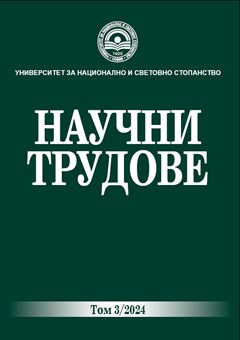The Belt and Road Initiative in the Context of Geopolitical Rivalry – Risks and Opportunities for Bulgaria
Автор: Georgi Chankov
Резюме
On the territory of the European Union, logistical projects clash as a reflection of the clash for global supremacy in establishing a new world order. The Belt and Road Initiative (BRI) is a major strategic undertaking, combining two traditional Eurasian trade roads - the Silk Road the Novgorod-Santiago de Compostela road. Due to their combination the countries in Central and Eastern Europe, part of the 16+1 platform, could become an important link in a larger “Eurasian Economic Community”, which could help overcoming their economic difficulties East-West trade statistics show the viability of the project. Such an opportunity faces the resistance by the USA, which launch their own project, the Trimorje, to cut off the economic ties between their geopolitical rivals and CEE. The conflict in the Ukraine cuts off these ties in the North-Est and shifts the weight to the southern section of BRI, the Third Eurasian Continental Bridge. If the EU succeeds in maintaining trade relations with China, this shift reveals new opportunities for Bulgaria to serve as logistic hub, but a negative scenario should not to be excluded.
JEL: F19

